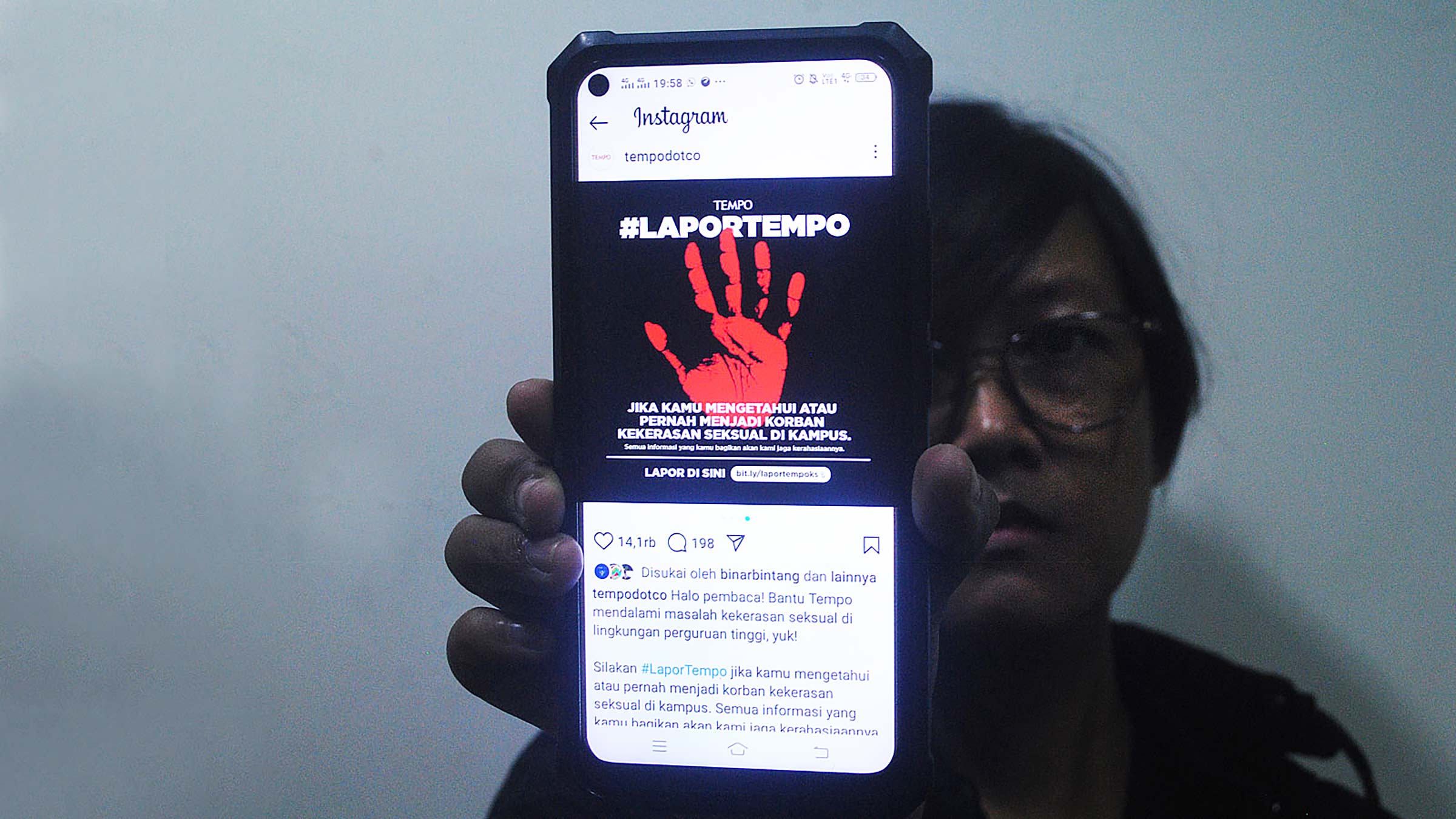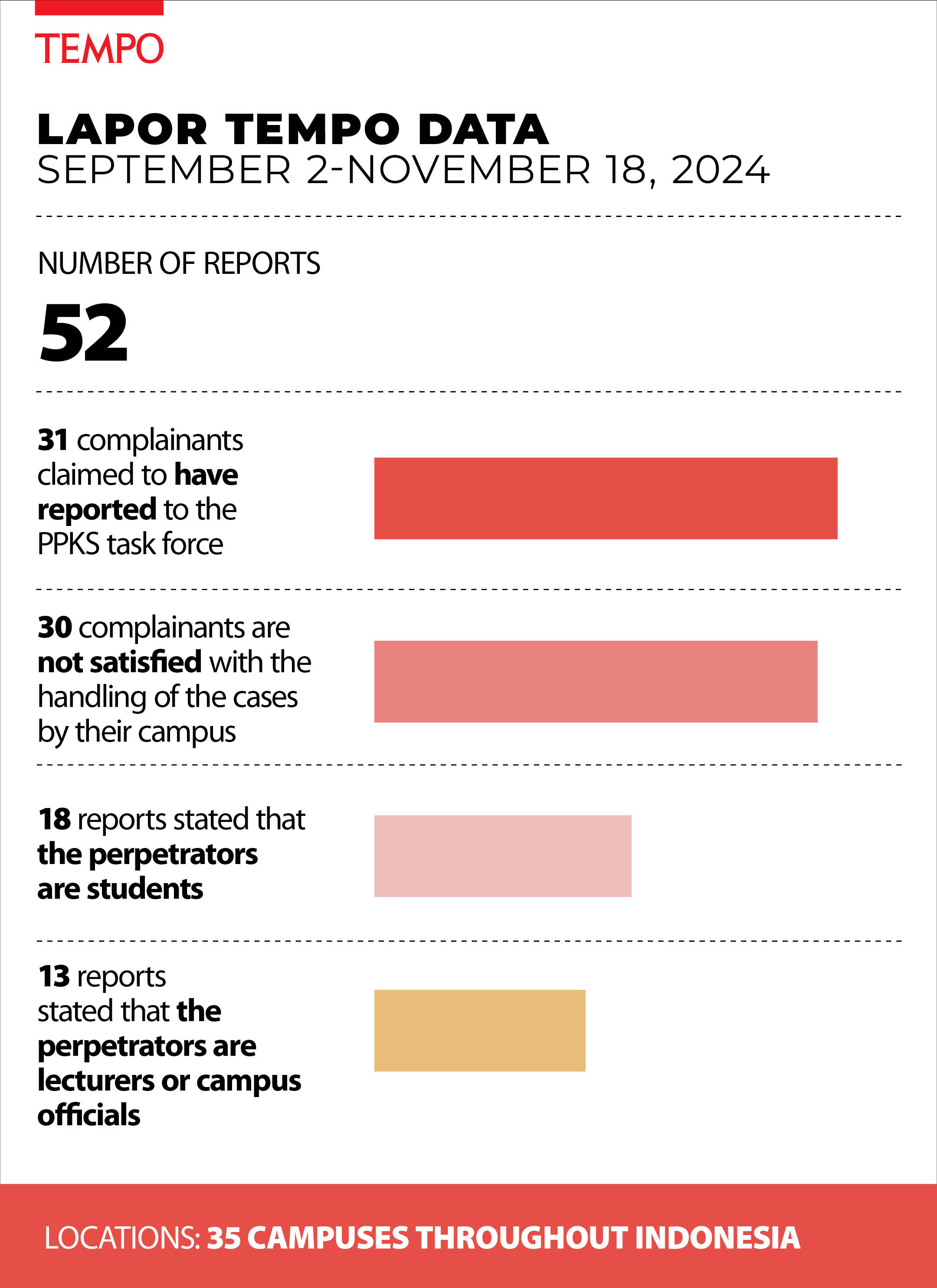Lapor Tempo: Sexual Violence on Campus Victims Reporting App
Monday, November 25, 2024
As a form of public participation, Tempo provides Lapor Tempo to accommodate reports from victims of sexual violence on campuses.
arsip tempo : 174564259862.

INVOLVING public participation is one of the key elements in the concept of constructive journalism. This method aims to capture the full scope of social issues. Tempo’s coverage of sexual violence on campuses seeks to apply this element of public participation in its reporting process. The platform chosen for this purpose is Lapor Tempo (Report to Tempo).
The Lapor Tempo reporting channel was promoted through Tempo’s official Instagram account, @tempodotco. The flyer was first posted on September 2, 2024. In the caption, the editorial team also included a digital form for victims or those who knew of sexual violence incidents of sexual violence on their respective campuses to detail their reports.
Sexual violence cases remain hidden in both state and private universities. Despite the existence of the Minister of Education, Culture, Research, and Technology Regulation No. 30/2021 on the Prevention and Handling of Sexual Violence in Higher Education, which was later detailed through Regulation No. 55/2024, the handling of sexual violence cases still falls short of expectations.
Moreover, many cases remain unresolved. Currently, the Sexual Violence Prevention and Handling (PPKS) Task Force at both state and private universities are still handling 269 cases. “All state universities now have a PPKS task force," said the Deputy Minister of Higher Education, Science, and Technology, Fauzan.
It turns out that the Lapor Tempo channel has received positive feedback from readers. The identities of the complainants are kept confidential. Since the channel was launched, 52 complaints have been received from various regions. Some of the complainants are current or former students, while others are relatives who claim to have been victims of sexual violence at their respective campuses.
Because their identities are guaranteed to remain undisclosed, many complainants have felt emboldened to share the details of the harassment they experienced. “I was forced to have sex even though I had refused,” wrote one student from West Java. “The lecturer grabbed my shoulder and kissed my forehead when saying goodbye after my thesis guidance session,” recounted another victim, a student at a state university in Sumatra.
Most of the complainants included their phone numbers or email addresses for follow-up. The editorial team communicated with several of them. Some of their stories were then used as the basis for a detailed report on sexual violence on campuses, which is published this week.












